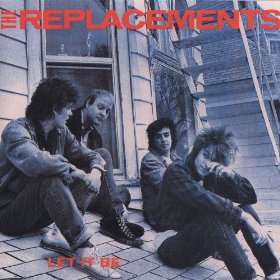
A little known fact is that, for a while, the Replacements moonlighted between gigs as roofing contractors. To this day, they rank as one of the least-productive work crews in the history of roofing.
Well, the 3rd anniversary of Reselect has come and gone with little-to-no celebration to speak of, and I have only myself to blame for that (note the sparsity of posts this year). So let’s consider today’s post the anniversary post this time around…and tie to it a hope that there will be greater consistency of posting in the months to come. Or until that happens, think of this as your Post-of-the-Month blog, with the exception that you don’t get to return posts you don’t like. But hey, that’s not going to happen, since I know you’re always all in agreement with me on these things…right?
But moving on to today’s song: the fact that I’ve never featured The Replacements here came as a bit of a surprise to me when I realized it. I’ve made reference to them here and there, but never got around to an actual post. So it’s time to rectify that. And to do so, I’m going back to their classic breakthrough album, Let It Be, the 1984 album that dared to take on a Beatles album title and lived to tell the tale. Only a truly great collection of songs could overcome that sort of prank, and such was the case here. On songs like the fantastic lead track, “I Will Dare”; the deceptively jazzy piano-bar ditty, “Androgynous”; or the angstful acoustic ballad, “Unsatisfied,” Paul Westerberg hit his songwriting stride and proved himself to be one of the greats of his generation. The band as a whole held things together surprisingly tightly on the rockers (given their penchant for disastrously drunken live shows), from the great cover of KISS’s “Black Diamond” to the wiseass “Gary’s Got a Boner” to the MTV kiss-off, “Seen Your Video” (“Seen your video, the phony rock ‘n’ roll/We don’t want to know”).
But for me, the song that brought it all together — Westerberg’s potent lyrics and the rough edge of the rockers — was “Answering Machine,” the final song of the album. Featuring Westerberg alone on electric guitar and vocals, “Answering Machine” nails a late-night feeling of insecurity, not knowing where things stand in a relationship, but even after building up the courage to confront the situation, being unable to get the needed reassurance. Even if it isn’t always literally an answering machine standing in the way, the emotions Westerberg sings about — in what I feel is one of his greatest vocal performances — are universal.
How do you say I miss you
To an answering machine?
How do you say good night to
An answering machine?
How do you say I’m lonely to
An answering machine?
The message is very plain
Oh, I hate your answering machine

